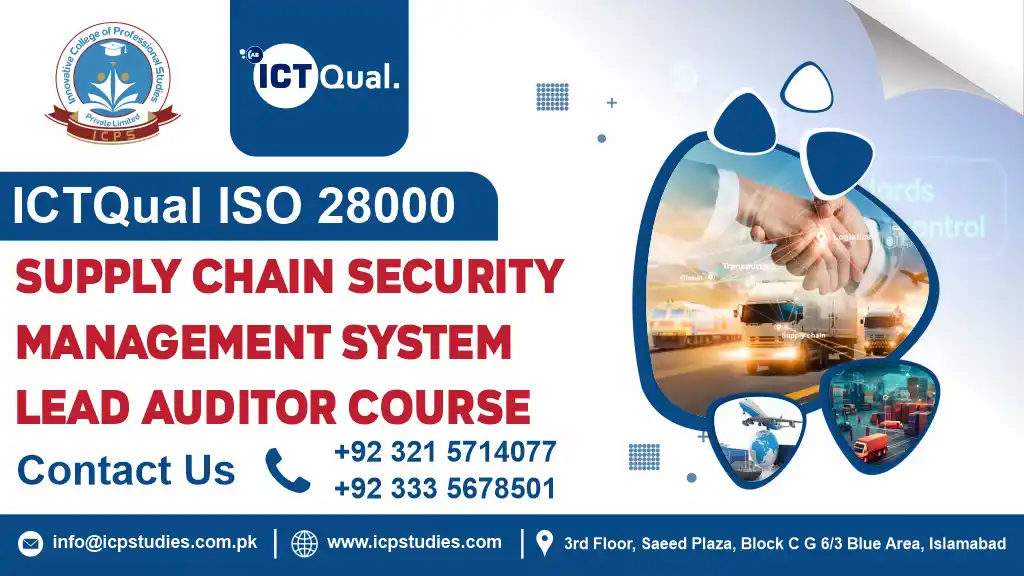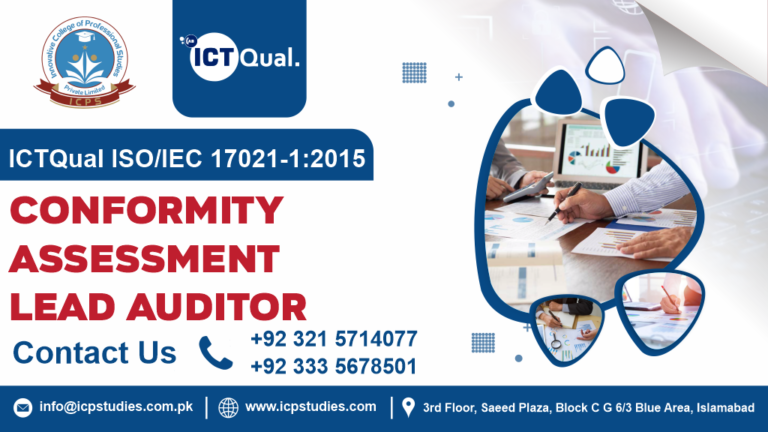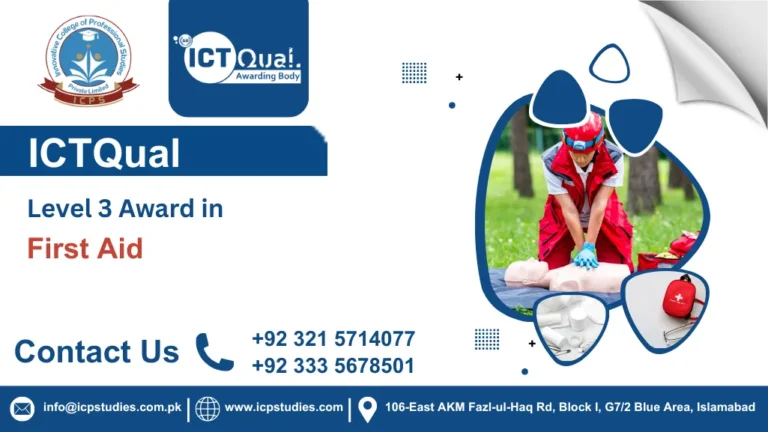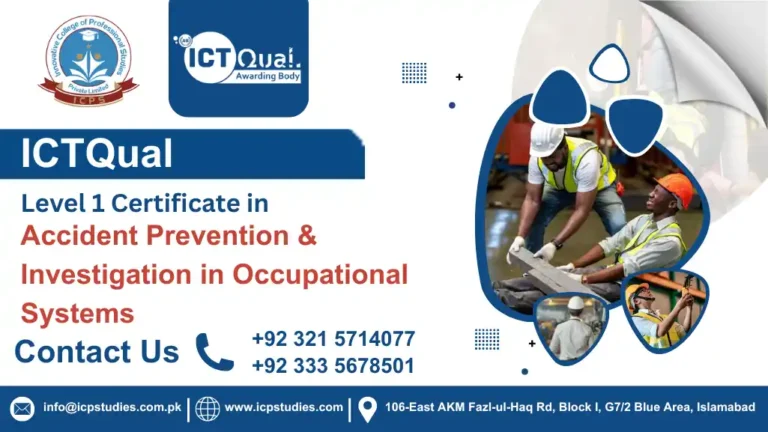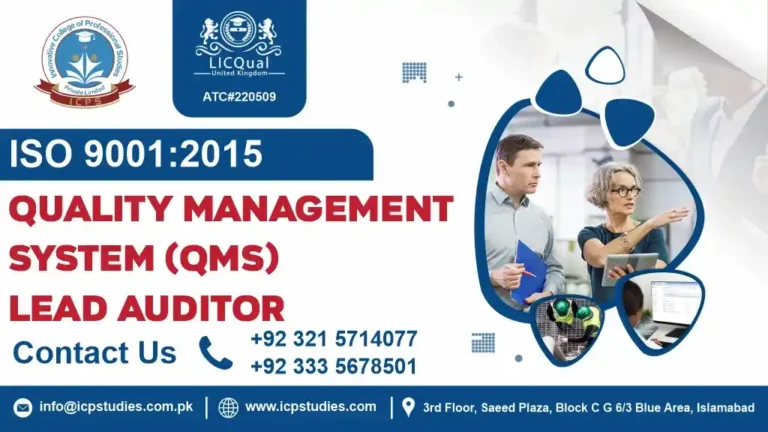In today’s interconnected world, the security of supply chains has never been more crucial. With global trade expanding and supply chains becoming increasingly complex, organizations are under pressure to safeguard their operations against potential threats and vulnerabilities. One of the most effective ways to enhance and validate your supply chain security measures is through the ICTQual ISO 28000 Supply Chain Security Management System Lead Auditor Course. This course is designed to equip professionals with the knowledge and skills required to audit and ensure robust security within supply chains.
ISO 28000 is an international standard that specifies the requirements for a security management system in the supply chain. It focuses on identifying and mitigating risks, improving security processes, and ensuring compliance with legal and regulatory requirements. The standard helps organizations to protect their assets, prevent disruptions, and enhance their overall security posture.
The ICTQual ISO 28000 Supply Chain Security Management System Lead Auditor Course is an invaluable opportunity for professionals seeking to enhance their expertise in supply chain security. By achieving certification, you not only advance your career but also contribute significantly to the security and resilience of global supply chains. As organizations continue to navigate an increasingly complex and volatile environment, your role as a lead auditor will be crucial in ensuring that supply chains remain secure, efficient, and compliant. Invest in your future and the future of supply chain security by enrolling in this transformative course today.
All About ICTQual ISO 28000 Supply Chain Security Management System Lead Auditor Course
Course Overview
The ISO 28000 Supply Chain Security Management System Lead Auditor Course is a specialized training program designed to equip professionals with the knowledge and skills needed to conduct audits of supply chain security management systems based on the ISO 28000 standard. This course focuses on developing the expertise required to assess, evaluate, and improve the security practices within supply chains to ensure they meet international standards for risk management and security.
The ISO 28000 Supply Chain Security Management System Lead Auditor Course is a comprehensive training program that provides essential skills and knowledge for auditing and managing supply chain security systems. By participating in this course, professionals gain expertise in assessing and improving security measures, enhancing their career prospects, and contributing to the overall security and resilience of global supply chains. Whether you are looking to advance your career or ensure your organization’s compliance with international security standards, this course offers a valuable pathway to achieving those goals.
Study Units
- Introduction to Security Operations Management Systems
- Core Elements of Security Operations Management
- Principles of Auditing Security Operations Management Systems
- Planning and Preparation for Security Operations Audits
- Conducting Security Operations Audits
- Reporting and Documentation of Audit Findings
- Corrective Action and Follow-Up
- Continuous Improvement and Professional Development
- Educational Background: A degree in business, supply chain management, logistics, security management, or a related field is preferred.
- Work Experience: Relevant experience in supply chain management, security management, or quality assurance, usually 3-5 years.
- Familiarity with ISO Standards: Basic knowledge of ISO 28000 and related standards in supply chain security is beneficial.
- Understanding of Supply Chain Principles: Awareness of supply chain operations, security risks, and best practices.
- Audit Experience: Prior experience in conducting audits or assessments, particularly in supply chain or security contexts, is often required.
- Analytical Skills: Ability to analyze supply chain processes and evaluate compliance with security standards.
- Communication Skills: Strong verbal and written communication abilities to effectively engage with stakeholders during audits.
These requirements ensure that participants are well-prepared to lead audits of supply chain security management systems based on ISO 28000 standards.
- Supply Chain Managers: Professionals responsible for managing and securing supply chain operations.
- Security Managers: Individuals focused on implementing and overseeing security measures within the supply chain.
- Quality Assurance Auditors: Those assessing compliance with supply chain security standards and practices.
- Logistics Managers: Professionals involved in the transportation and distribution of goods who need to ensure security measures are in place.
- Risk Management Professionals: Individuals responsible for identifying and mitigating risks in the supply chain.
- Consultants: Experts advising organizations on supply chain security and ISO 28000 implementation.
- Internal Auditors: Those conducting audits to evaluate the effectiveness of supply chain security management systems.
This course equips participants with the skills and knowledge necessary to effectively audit and assess supply chain security management systems according to ISO 28000 standards.
Learning Outcome
Introduction to Supply Chain Security Management Systems
Learning Outcomes:
- Understand the Purpose and Importance: Explain the significance of supply chain security management systems in the context of ISO 28000 and their role in safeguarding supply chains.
- Identify Key Concepts: Describe the fundamental concepts and terminology related to supply chain security management.
- Recognize the Scope of ISO 28000: Articulate the scope and objectives of the ISO 28000 standard, including its application to various types of organizations and supply chains.
2. Core Elements of Supply Chain Security Management
Learning Outcomes:
- Outline Core Components: Identify and describe the core elements of a supply chain security management system, including policies, procedures, and controls.
- Understand Risk Management: Explain how risk management is integrated into the security management system and its importance in identifying and mitigating potential threats.
- Implement Security Measures: Discuss the implementation of security measures and controls that address identified risks and vulnerabilities in the supply chain.
3. Principles of Auditing Supply Chain Security Management Systems
Learning Outcomes:
- Understand Audit Principles: Explain the fundamental principles of auditing, including objectivity, evidence-based evaluation, and systematic approach.
- Apply Auditing Standards: Describe the auditing standards and frameworks relevant to supply chain security management, including those specified by ISO 28000.
- Develop Auditing Skills: Demonstrate an understanding of the skills and competencies required to conduct effective audits of security management systems.
4. Planning and Preparation for Supply Chain Security Audits
Learning Outcomes:
- Develop Audit Plans: Create comprehensive audit plans, including objectives, scope, methodology, and timelines.
- Prepare Audit Tools: Prepare and utilize audit tools and checklists specific to supply chain security management systems.
- Organize Audit Activities: Organize and coordinate the necessary resources and personnel for conducting an effective audit.
5. Conducting Supply Chain Security Audits
Learning Outcomes:
- Execute Audits Effectively: Conduct audits of supply chain security management systems according to the established audit plan and methodologies.
- Gather and Analyze Evidence: Collect and analyze evidence to assess the effectiveness of security measures and identify any non-conformities.
- Engage with Auditees: Interact with auditees in a professional manner to obtain relevant information and ensure a thorough audit process.
6. Reporting and Documentation of Audit Findings
Learning Outcomes:
- Document Findings: Accurately document audit findings, including evidence of compliance and non-compliance with ISO 28000 standards.
- Prepare Audit Reports: Create clear, comprehensive audit reports that effectively communicate findings, conclusions, and recommendations.
- Present Findings: Present audit findings to stakeholders in a manner that is both constructive and actionable.
7. Corrective Action and Follow-Up
Learning Outcomes:
- Recommend Corrective Actions: Propose effective corrective actions to address identified non-conformities and weaknesses in the supply chain security management system.
- Monitor Implementation: Monitor the implementation of corrective actions to ensure they effectively resolve the issues identified during the audit.
- Evaluate Effectiveness: Evaluate the effectiveness of corrective actions and make recommendations for further improvements if necessary.
8. Continuous Improvement and Professional Development
Learning Outcomes:
- Promote Continuous Improvement: Advocate for and contribute to the continuous improvement of supply chain security management systems based on audit findings and industry best practices.
- Engage in Professional Development: Identify opportunities for ongoing professional development and education to stay current with changes in standards, regulations, and auditing practices.
- Apply Best Practices: Apply best practices in supply chain security management and auditing to enhance personal skills and organizational processes.
These learning outcomes provide a clear framework for what participants can expect to achieve through each unit of the ISO 28000 Supply Chain Security Management System Lead Auditor Course. They ensure that participants gain the comprehensive knowledge and practical skills necessary to excel in auditing and managing supply chain security.
FAQs about ICTQual ISO 28000 Supply Chain Security Management System Lead Auditor Course

